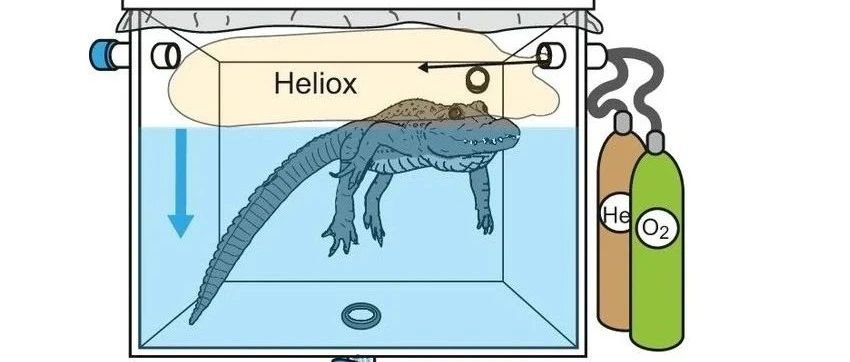
The sound of inhaling helium becomes "Donald Duck" in a second-what if it is sucked by a crocodile?
There are many small question marks in the hearts of the tested crocodiles.
take a breath of helium and you can add funny special effects to your voice like Donald Duck. And the really curious scientists obviously won't stop there: it's just how boring humans are! Why can't the crocodile suck it, too?
Yes, let the crocodile absorb helium. They not only did it, but also published papers and won the 2020 Ig Nobel Prize for Acoustics.
Busylooking for a piece of short sexy wedding dresses to flaunt your sexuality? Allow to be served with the coolest tastes available.
(crocodile: what's going on? | Jim Darlington)
how to inhale helium to a crocodile
in this study published in 2015, Stephan Reber and other five researchers reported their experiment of inhaling helium to a female Chinese alligator and the sound-changing effect of the crocodile after inhaling helium.
strictly speaking, crocodiles do not inhale pure helium, and a mixture of helium and oxygen, which maintains breathing, can also produce a sound-changing effect similar to that of helium. The researchers left the crocodile alone in a sealed cabin, filled it with air or helium-oxygen mixture, and recorded the sounds made by the crocodile in both cases.
what is this?
of course, the answer is certainly not meant to be funny. As a serious scientific study, subjects were asked to inhale helium in order to understand the role of resonance in their vocal production.
when inhaling helium, the human voice becomes a sharp and strange "cartoon sound". In this process, the vibration frequency produced by the vocal cords itself does not change, but the resonance in the vocal cavity is changed. When the gas in the vocal cavity changes from air to helium, the resonance frequency increases, so that the high-frequency overtone is amplified, and the sound sounds high and sharp. By using this research method, the vibration of the vocal cords can be separated from the resonance zone, and the influence of resonance on sound can be understood.
(listen to how helium changes human voice | The Royal Institution)
cavity resonance plays a very important role in both bird singing and human language. And as for crocodiles. No one has studied it before. As a result, the study of helium inhalation on the vocal resonance of crocodiles was born.
the results show that although the sense of hearing is somewhat subtle, the crocodile inhaled helium-oxygen mixture does have a sound change effect similar to that of humans: with the change of gas composition, the frequency of the formant of the sound spectrum increases.
what's the use? At least it works for crocodiles
it seems that cavity resonance also has an important effect on the sound of crocodiles, so what's the use of knowing that? At the very least, it works for crocodiles.
the resonant frequency of the acoustic cavity is related to the size of the resonant cavity, and the size of the resonant cavity is proportional to the size of the animal. Therefore, the resonance should reveal information about the size of the animal: the voice of the larger animal will sound deeper. For crocodiles, this information is very useful in choosing mates and competing for territory.
inhaling helium to change sound, maybe dinosaurs can also
in addition, this study also leaves room for people to reverie. Living crocodiles, birds, and extinct dinosaurs all belong to the evolutionary branch of the main dinosaur (Archosauria), and since the voices of crocodiles and birds are largely affected by cavity resonance, dinosaurs may be the same-that is, they can probably change their voices if they inhale helium.
although real-life scientists don't have a chance to chase dinosaurs with helium cylinders, it might be a good idea to tuck it into the Jurassic Park sequel.
(it's a pity that we can't prepare helium balloons for short hands)
Safety Tips
inhaling too much pure helium can cause hypoxia. Try to be cautious.